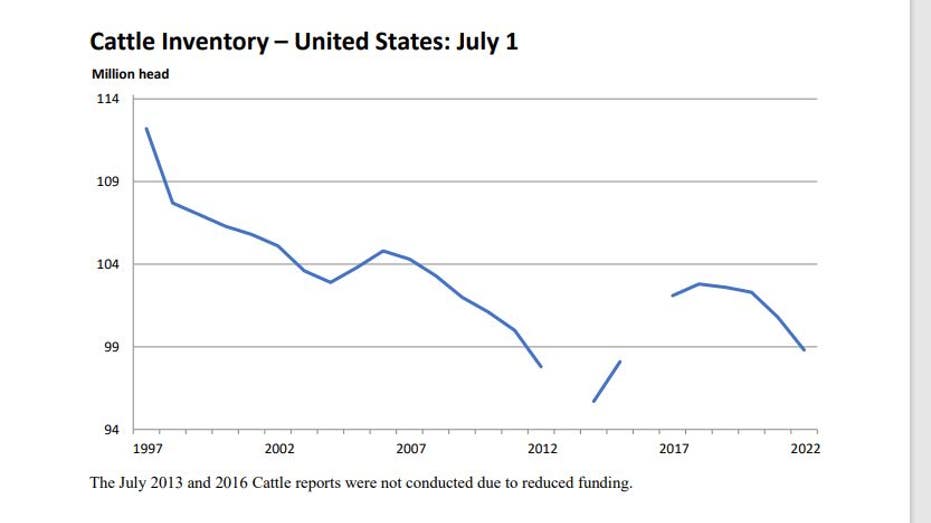U.S. cattle producers are sending higher numbers of breeding stock to the sale barn, and some are liquidating their herds entirely, signaling a trend that analysts say will likely push already-elevated beef prices even higher in the not-too-distant future.
The latest cattle report from the U.S. Department of Agriculture shows the market has contracted to levels not seen in years, with total inventory dropping 2% to 98.8 million head since July 2021.

Cattle inventory has dropped to its lowest level in years as it continues to decline. (United States Department of Agriculture)
But it’s not just the reduction in cattle overall that is of concern. It’s what is getting sent to slaughter. There is a notable boost in calf-producing females getting sold for processing in addition to steers, which are typically favored for consumption.
“We are seeing large numbers of female stock have been placed in feedlots,” USDA livestock analyst Shayle Shagam said in a radio report for the agency Tuesday.
The number of females in feedlots is up 3%, and existing herds are down roughly 2.7% from a year ago. Shagam said that combination means “supplies of cattle going to feedlots is going to be declining,” resulting in “progressively tighter supplies of all fed cattle available for slaughter as we move into 2023.”
With the price of ground beef up 9.7% in June from the same month a year ago, the ongoing decrease in supply could cause prices to surge even further than earlier estimates. The USDA’s previous price forecast projected average steer prices would be up nearly 8.5% next year, prior to the storm of conditions causing increasing headaches for producers.
Sky-high input prices coupled with ongoing drought conditions in much of the country are exacerbating the sell-offs.
National Cattleman’s Beef Association CEO Colin Woodall says this year’s drought is more widespread than the regional droughts seen in years past, when producers could send their cattle to other parts of the country to graze until it started raining again.
But so much of the country is in a drought.
“There’s no place to go because everybody is struggling to find the forage they need to feed their cattle,” Woodall told FOX Business.
